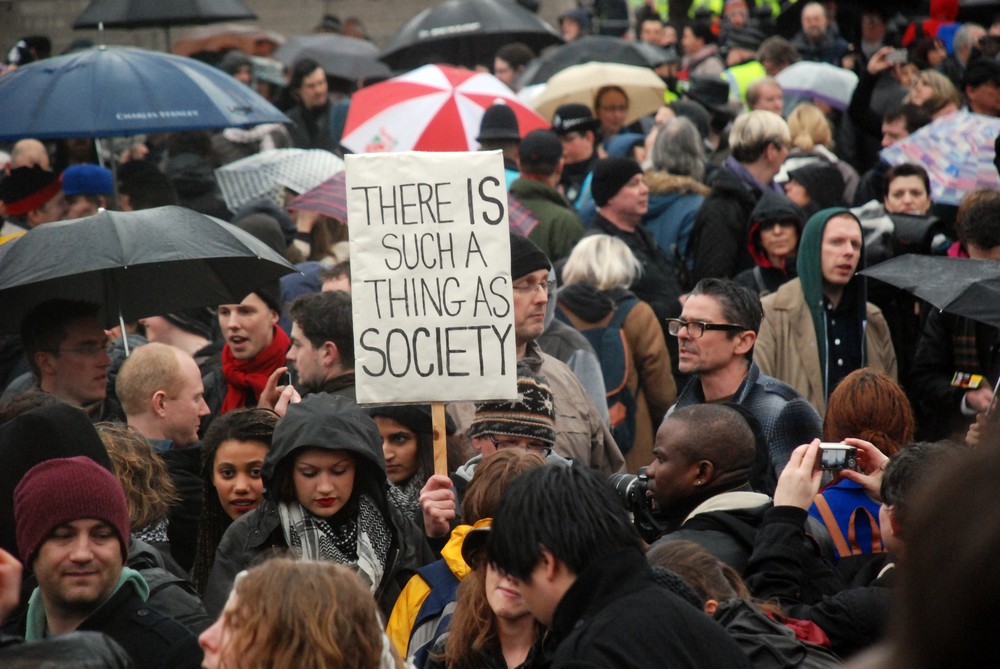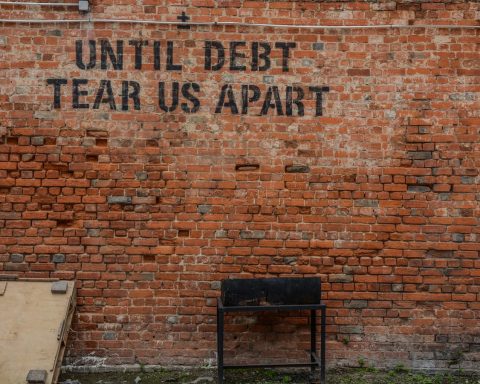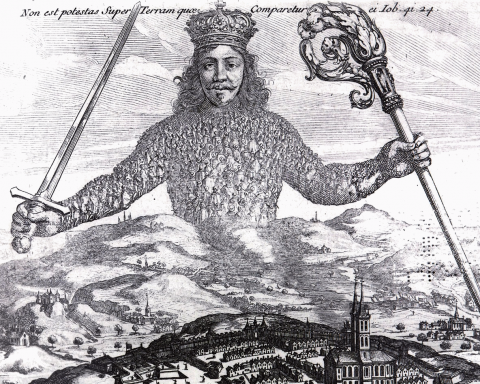Until very recently, ‘neoliberalism’ was a term that we rarely encountered outside academic premises. Today we increasingly witness the use of the term within popular debates, owing to the worldwide societal manifestations of the politico-economic arrangements generated by contemporary capitalism. Neoliberalism, a term thoroughly imbued into the vocabulary of the disciples of realpolitik and mainstream economics especially over the last decade, has become an inescapable element to colloquial discussions of our times as much as to a legion of scholarly investigations on human society. Upon closer examination of these discussions, we notice how a great majority of the parties to these debates in our country as well as across the world are only nominally familiar with the word and appear to be in a significant state of confusion regarding its meaning. Those who apprehend neoliberalism in a coherent manner, on the other hand, are also in an understandable discord around its conceptualisation.
Simplistically used to define a worldview in the language of realpolitik and an economic doctrine narrowly conceived within the banality of (neo-)classical economics, neoliberalism indicates a series of interrelated politico-economic and social processes within the critical quarters of academic literature. As such, it does not only imply a definite set of administrative and civil policies, but also depicts novel capital accumulation strategies and a far-reaching project for societal transformation. It can thereby be said that neoliberalism signifies the ever-expanding global integration of the world market shaped by financialisation processes together with the promotion of free-market entrepreneurialism at the hands of political subjects; then again, neoliberalism comes to the fore as a well-established object of class struggle along the axes of forever shifting power blocs and weakening labour organisations in the face of the accelerated confiscation of hard-earned civil rights and basic liberties of the last century. Given all the aforementioned, we could characterise neoliberalism as the epitome of a complex global multiscalar restructuration, which could be in turn investigated by various processes of all sizes intrinsic to marketising trends from 1970s onwards.
Regardless of the definition employed, we could not scrutinise neoliberalism without broaching capital as a principal political actor and a social power group along with its contentious relation with labour. Always uncritically embraced as a self-evident background by mainstream approaches, neoliberalism is in fact expressive of a process without an end-state in constant self-renewal. That there exists no definite end-state to its creative destruction determines the very limits of neoliberalism. In contrast to the conventional thesis of ‘the allocation of scarce resources in a finite world’ as postulated by vulgar economics, capital is governed by its inherent urge for infinite growth and expansion; neoliberalism, quintessentially a project embodied by this endeavour, devastates our societies beyond recognition of any kind but in the most shameful pages of history while also irreversibly ravaging our planet by corroding its natural frontiers. In so doing, and by effectively undermining its very constituent basis through its practical falsification of bourgeois liberal concepts, neoliberalism perpetually exhausts various arguments in its favour as advanced by market ideologists.
We bear testimony to an epoch which harbours alternatives for politico-economic production and social reproduction; we think that it should not be merely a matter of scientific curiosity, understood in a positivistically descriptive sense, to gaze beyond neoliberalism, which is not only riddled with uncertainties about tomorrow but also rife with limits in its social areas of application. Surveying the global scenery, we could delineate a grim landscape of deepening contradictions and conflicts that give rise to much preventable suffering. These include, but are not confined to, a deepening environmental crisis, unending proxy wars, rampant racism and rising authoritarian tendencies, unemployment levels matching those of the Great Depression era and overbearing income inequality, millions displaced from their home countries, and a globally collapsed healthcare system; under such dire conditions, revisiting neoliberalism will most definitely prove an invaluable source of analytical inspiration for the subjective struggles of those who long for a social transformation that may decisively precipitate a conclusion to all this turbulent state of tribulation.
In light of all these evaluations, we as textum rolled up our sleeves to bring to you, our readers, a series of interviews comprised of five parts with leading researchers, thinkers and theorists from several disciplines. Through a collaborative effort of this nature, it is our intent to decipher neoliberalism with frequently conceived study items by deploying often disregarded objective categories. We believe that such an intervention, which traces neoliberal (re-)formulations of society on various levels with its manifold articulations, would introduce our readers to a theoretical repository of concepts poised to construe the epoch by transcending it. To this aim, we seek to first address neoliberalism in its concrete boundaries by laying stress upon such crucial domains of reference as the modern state, contemporary welfare regimes and alternating forms of imperialism. We shall thereafter elaborate on the extent and prospects of the prevalent social resistance imminent to these phenomena circumscribed by the neoliberal project.
Most analyses revolving around neoliberalism still fall into the usual ontological trap of an axiomatic non-porous state/market division; given this, it will be most opportune to set out this series with an interview on ‘neoliberalism and the state’ that will frame our debate along the needed counterposing and thought-provoking lines. Following this prologue will be a second interview on ‘neoliberalism and imperialism,’ discussing international capital relations that identify with neoliberal globalisation. Running parallel to imperialist relations of exploitation and proxy wars that redress peripheral countries as cheap labour havens for large conglomerates of capital is the escalating state violence. The third component of our series will therefore take up ‘neoliberalism and authoritarianism’ by delving into the core of state violence and underlying policies of repression and punishment. The resultant authoritarian political regimes that grow in the shadow of an ascendant right-populist politics is complemented by intensification of poverty and decimation of social welfare. For this reason, a fourth interview titled ‘neoliberalism and welfare’ will be in order to illuminate the conundrum of integration of popular masses into a financialised social system despite and along with the subordinate conditions of labour. Our final interview concerns ‘neoliberalism and struggle,’ by which we allude to social movements of participant subjects whose imaginaries of resistance and prefigurative practices endure the limits of neoliberalism and offer us a glimpse into the alternative societies which lie beyond.
With these five interviews wherein we will strive to weave together multifaceted crises of our times engendered by neoliberalism, we hope to explicate the complexity of the problems we face today on a conceptual level. To put it from a materialist perspective, concepts are weapons insofar as they facilitate a rational evaluation of the concrete conditions of actual life and livelihood. There is no question that the better we grasp our social reality in which we all partake the more we are adept at intervening in its continuous reconstruction, which culminates in a ceaseless struggle for reclaiming the reality. In view of this fact, our objective with this interview series is to furnish our readers with a significant part of the required concepts to both reinterpret and transform the world.
As we draw closer to the end of the year 2020, we find ourselves situated in the midst of a rapidly changing political scenery and a complex class landscape, often erroneously demarcated from such intertwined contexts as gender, race, nationality and migration. The appropriate counter-hegemonic practice today requires more than ever an epistemology that is capable of sketching an alternative future as well as an ontological toolset that renders an explanatory abstraction of the concrete situation. Even though new modes of struggle are commonly interpreted as harbingers of an organic international collectivity, we must underline the futility of expecting that the crisis we face today would spontaneously beget a liberatory subjective power. If we are to echo the revolutionary volition that pulsates within the theory and practice of Rosa Luxemburg, we can rather firmly declare that the grave conditions of social inequality, which do not only reflect but also in return exacerbate the systemic crisis, will never automatically bestow the prepotent agency of conscious subjectivity upon disorganised, socially atomised individuals.
Such organised subjectivation necessitates a sobering distance from the decrepit conceptual sets of our times and the taken-for-granted bourgeois normative thinking which has been so many times falsified as referred to in the above lines. In other words, to consolidate an ontology cognisant of this epoch with an epistemology transcendental of its time is a vital, or even mandatory, initial step to subvert the reality of this day through a vision well-anchored in that of tomorrow. By satisfying this need, this interview series will serve to both critique a social reality fraught with contradictions sharpened by the day and rethink the theoretical arsenal indispensable to the construction of a classless society. We are therefore happy to present to our readers this series, which we hope will provide valuable hints about labour-based strategic interventions that can robustly respond to neoliberal complexity despite all its unknowns.
Special series on Neoliberalism -A Foreword to the Series -Neoliberalism and the State: Interview with Pınar Bedirhanoğlu [Kübra Altaytaş & Ozan Siso] -Neoliberalism and Imperialism: Interview with Intan Suwandi [Candaş Ayan & Ulaş Taştekin] -Neoliberalism and Authoritarianism: Interview with Galip Yalman [Kübra Altaytaş & Ozan Siso] -Neoliberalism and Welfare: Interview with Susanne Soederberg [Onur Acaroğlu & Gizem Sema]




